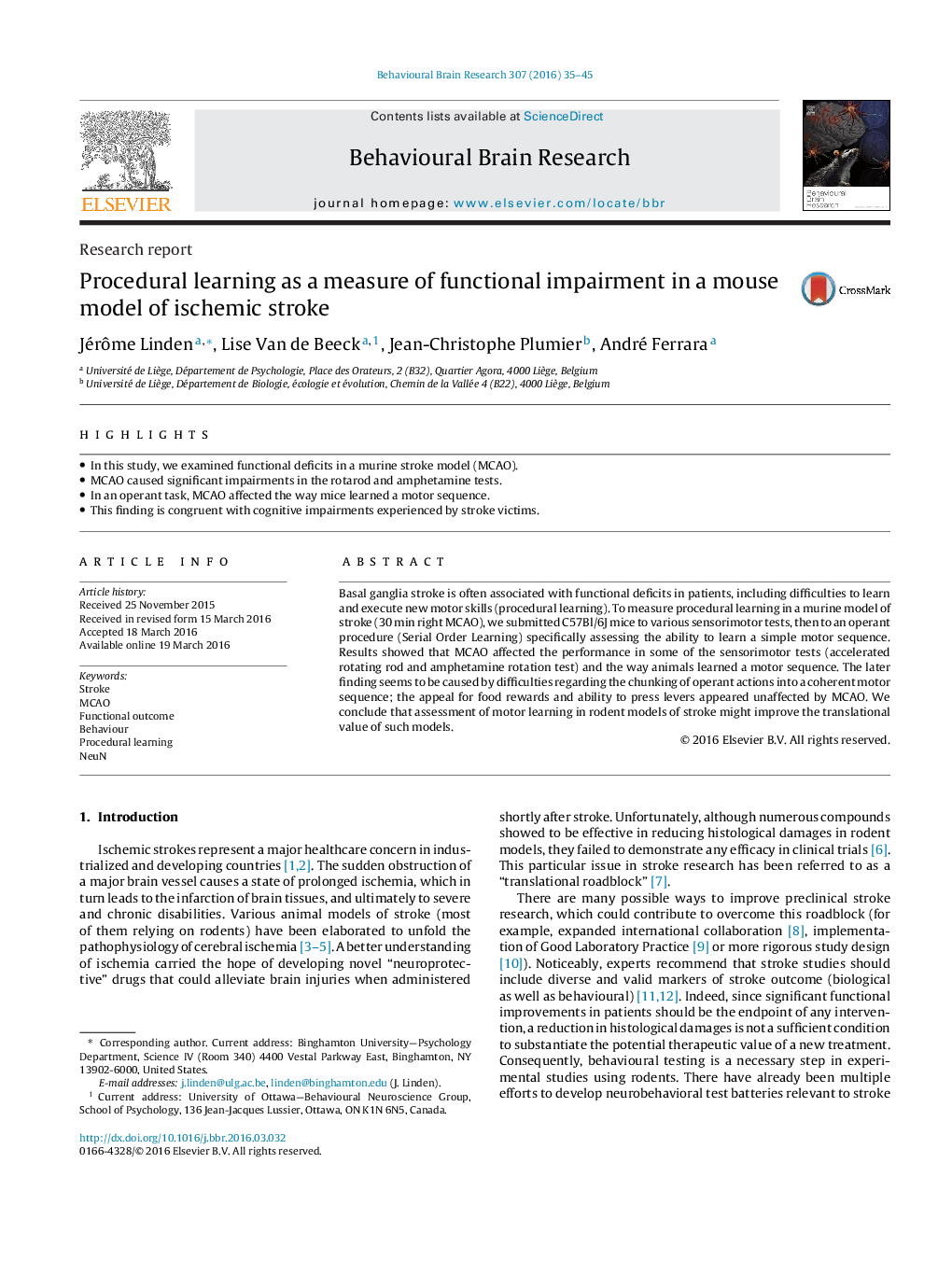| Article ID | Journal | Published Year | Pages | File Type |
|---|---|---|---|---|
| 4312252 | Behavioural Brain Research | 2016 | 11 Pages |
•In this study, we examined functional deficits in a murine stroke model (MCAO).•MCAO caused significant impairments in the rotarod and amphetamine tests.•In an operant task, MCAO affected the way mice learned a motor sequence.•This finding is congruent with cognitive impairments experienced by stroke victims.
Basal ganglia stroke is often associated with functional deficits in patients, including difficulties to learn and execute new motor skills (procedural learning). To measure procedural learning in a murine model of stroke (30 min right MCAO), we submitted C57Bl/6J mice to various sensorimotor tests, then to an operant procedure (Serial Order Learning) specifically assessing the ability to learn a simple motor sequence. Results showed that MCAO affected the performance in some of the sensorimotor tests (accelerated rotating rod and amphetamine rotation test) and the way animals learned a motor sequence. The later finding seems to be caused by difficulties regarding the chunking of operant actions into a coherent motor sequence; the appeal for food rewards and ability to press levers appeared unaffected by MCAO. We conclude that assessment of motor learning in rodent models of stroke might improve the translational value of such models.
